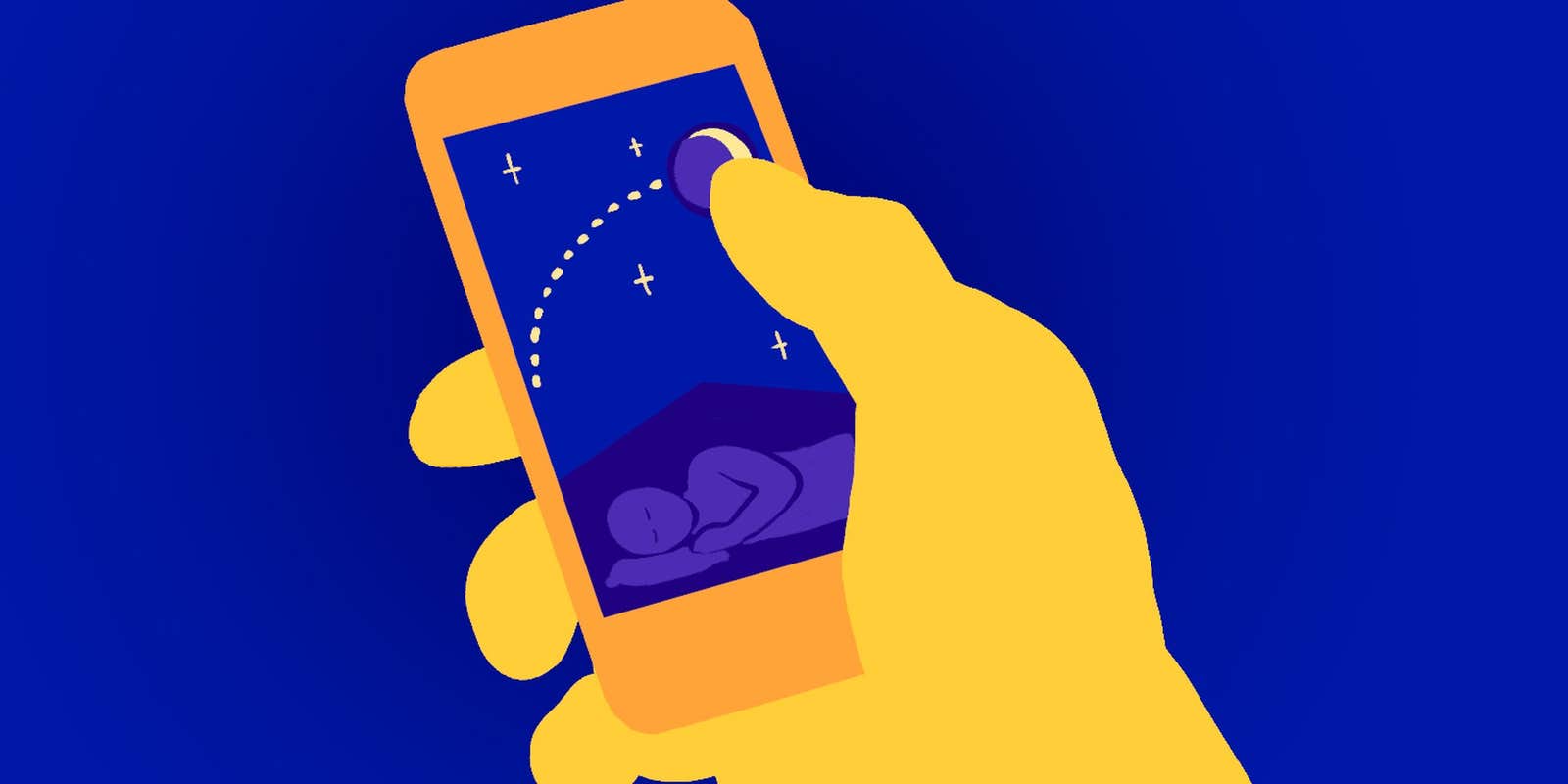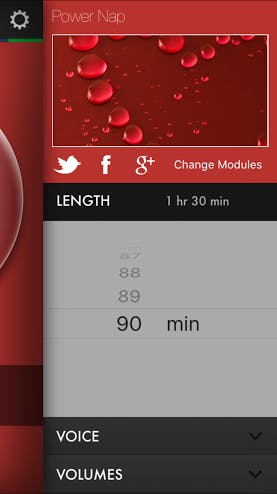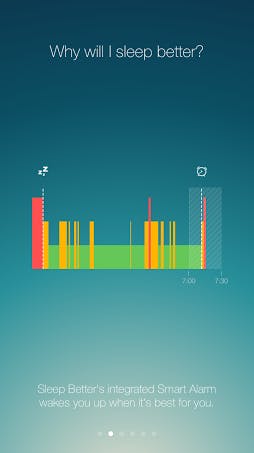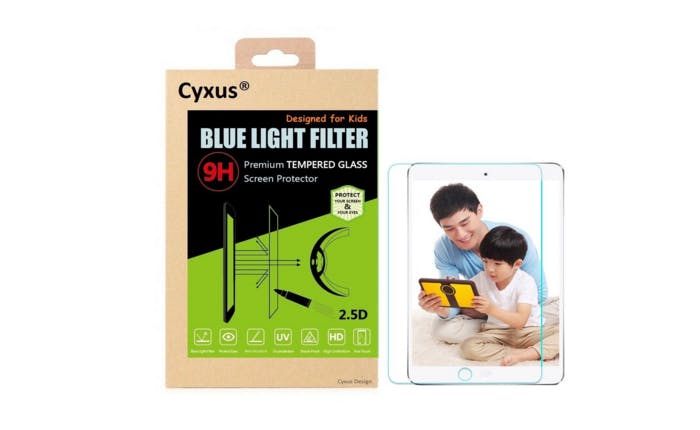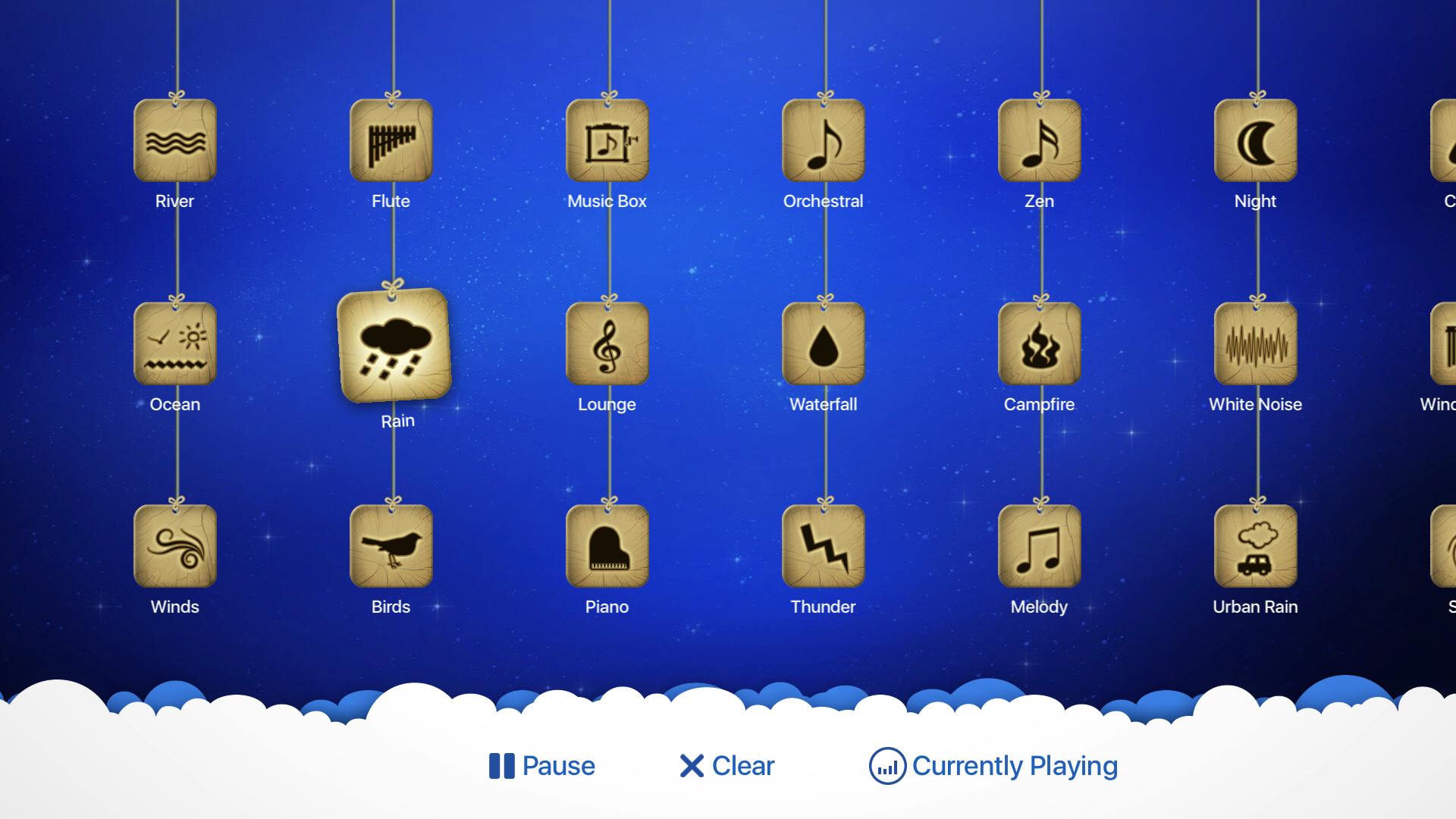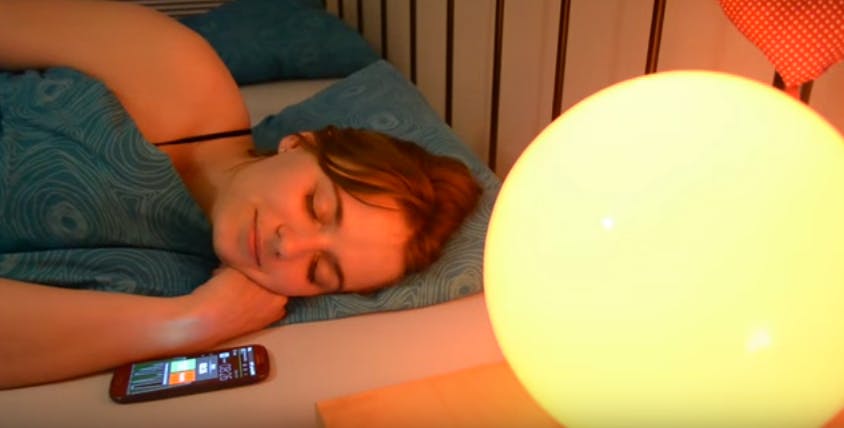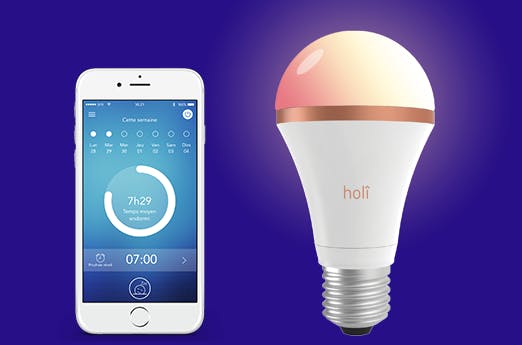Why is it so hard to get a good night’s sleep these days? Blame technology.
Americans are sleeping around an hour less per night than they did in 1942, according to a 2014 Gallup poll. And the reason for this nationwide sleep deficit is staring you in the face—literally. The blue light glare of our smartphones or laptops fools our circadian rhythms into thinking it’s daytime 24/7, ruining our evening slumber as a consequence.
Luckily, a new wave of apps and gadgets can help you get the sleep you need. Whether it’s white noise that will lull you to a deep snooze or an alarm perfectly timed to the end of your sleep cycle, there are plenty of ways technology can actually help you get a good night’s rest.
Here are some of our favorite sleep apps and gadgets:
1) Pzizz
If the sounds of tranquil springs or babbling brooks send you straight to the bathroom rather than lull you to sleep, Pzizz might be the sleep sound alternative for you. The app claims to quickly invoke sleep with a mix of meditation cues and binaural tones. There’s evidence, though limited, that binaural tones improve sleep quality and reduce stress by influencing the brain waves. Whether the science is sound or not, there’s no denying the large number of Pzizz devotees, including Dave Asprey of Bulletproof Coffee, who credit the app for ensuring they get their eight hours. The app contains two modules: one for sleeping at night, and one for “power napping” during the day. Both modules feature the voice of neurolinguistic programming coach Michael Breen, which is soothing to some, vaguely creepy to others, and (thankfully) can be turned off. Pzizz claims its algorithm can produce up to 100 billion different soundtracks. That could be a godsend if you find sleep CDs or sound machines to become ineffective over time due to your brain getting used to them.
Random fact: Pzizz’s music comes from British composer Paul Staveley O’Duffy, who has been nominated for a Grammy and co-wrote a song with Amy Winehouse.
Pzizz is available to download for free on iOS and Google Play.
2) Sleep Better
Sleep Better relies on your smartphone’s microphone feature to detect bodily movements and figure out when you’re in “deep sleep.” The app’s “Smart Alarm” will then calculate the best time to wake you when you’re in “light sleep,” based on a 30-minute timeframe you specify the night before. People who wake up during light sleep tend to feel more energized than those who are jolted awake during deep sleep.
But the real gem of Sleep Better is its sleep tracking features that let you see how factors such as alcohol, caffeine, a late dinner, or a workout can effect your sleep. Having such data at your fingertips over a period of time can help you nail down what lifestyle choices lead to your sleeplessness. The app also includes space to jot down dream notes and other observations. While it’s doubtful most Sleep Better users will have the time or willpower to document their sleep so thoroughly, it will no doubt result in helpful insights for those who make the effort.
Sleep Better is available to download for free on iOS and Google Play.
3) Cyxus Blue Light screen protector
Does your smartphone act as your alarm clock? Then it’s likely that you charge it by your nightstand, which makes it hard to resist giving Twitter a quick peek before bed. Or maybe you like reading on your iPad at night. Or perhaps you bring your smartphone, tablet, and laptop to bed with you every evening in some unsavory technology ménage à trois? Besides the obvious consequences for your love life, bedtime technology use can disrupt your sleep.
But if you’re not quite ready to quit your nocturnal Internet habits, it might be time to invest in a blue light screen protector, such as this line by Cyxus, for all of your devices. The screen protectors filter out blue light, which along with preventing eye-strain and eye-fatigue, can keep your smartphone or tablet from interfering with your sleep schedule.
Cyxus blue light screen protectors are available on Amazon and its company website.
4) Relax Melodies
Relax Melodies is one of the more well-known sleep sound apps, and for good reason. The app essentially lets you be the composer of your own nocturnal orchestra. It includes 52 different ambient sounds, ranging from the classic (“Waterfall”, “Ocean”) to the amusingly cryptic (“Urban Rain”). Relax Melodies then gives you free reign to mix up to 12 of these sounds together. If you’ve ever wondered what it would sound like to fall asleep in a jazz lounge IN the rainforest ON a windy night DURING a thunderstorm, you can mix up a simulation on Relax Melodies and find out for yourself.
Relax Melodies is available to download for free on iOS and Google Play.
5) Sleep As Android
Many an Android user have sworn by Sleep As Android as the one-size-fits all sleep app to rule all sleep apps. The app makes use of a “Smart wake up” alarm to stir you only while you’re in light sleep. It records movement, snoring, and heart rate. It lets you view reports on the quality of your sleep over time.
Have you been pulling too many late nights at the office? Sleep As Android warns you when you’re running a sleep deficit. The app also lets you choose from a variety of soothing alarms or your own personal playlist to stir you awake.
Sleep As Android is available to download for free on Google Play.
6) Holimotion Sleep Companion
European startup Holi unveiled its app-enabled LED lightbulb at this year’s International Consumer Electronics Show. The SleepCompanion lightbulb is designed to replace the one on your nightstand. The lightbulb combines 20 different light sources to produce the light your body needs to wake up naturally. SleepCompanion gradually dims as it gets closer to your set bed-time, and gradually brightens as it gets closer to your set wake-up time. According to Holi, this prepares your body for a natural wake-up. Users can then view their sleep patterns over time on the SleepCompanion app.
Illustration via Max Fleishman

